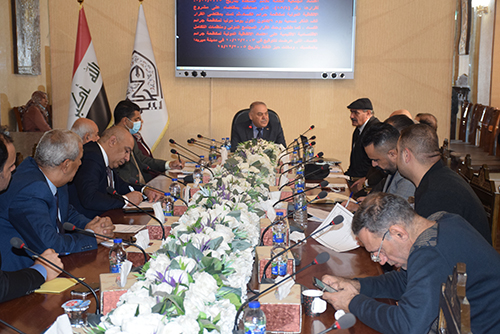|
United Nations Convention against Corruption and Good Governance
2020-12-14

United Nations Convention against Corruption and Good Governance
On the morning of Monday, December 14, 2020, the House of Wisdom held the Legal Studies Department, in cooperation with the Federal Commission for Integrity / Department of Relations with Non-Governmental Organizations, and in solidarity with the National Integrity Week, a workshop on the seminar hall in the House of Wisdom under the title (United Nations Convention against Corruption and Governance Rational).
The workshop was headed by Counselor Dr. Ezz Al-Din Al-Muhammadi - Supervisor of the Legal Studies Department and Session Reporter Professor Ahmed Fahim - the Integrity Commission, and each of the Messrs participated in this workshop:
- Professor Saleh Abboud Al-Tamimi / Assistant Director General of the Department of Relations with Non-Governmental Organizations, with a research entitled (Corruption crimes in accordance with the provisions of the United Nations Convention against Corruption), in which he talked about drawing up policies and practices to prevent and combat corruption according to United Nations laws.
The researcher called for focusing on national upbringing, preparing curricula that urge integrity and honesty, and strengthening the power of the judiciary to properly deal with corruption crimes, enhancing transparency in decision-making, as well as strengthening community participation.
- Assistant Professor Dr. Yamama Muhammad Hasan Kashkool / teaching at the College of Law - Al-Mustansiriya University with a research entitled (Constitutional Mechanisms to Confront Corruption and Address Its Effects) in which I dealt with corruption in making wrong decisions in terms of distribution to shopping centers in one area and the population pumping of Baghdad Governorate, which will negatively affect Infrastructure and future pressure.
It referred to corruption in its three types (financial, moral and economic) and its effects and future consequences on Iraqi society and the individual in general, psychologically and materially.
At the conclusion of the scientific workshop, the researchers called for the necessity to focus on the issue of corruption in all its forms, to strengthen and activate laws, and most important of all is good governance and correct decisions, taking into account awareness and non-exploitation of public funds and activating the participation of civil society organizations with state institutions |